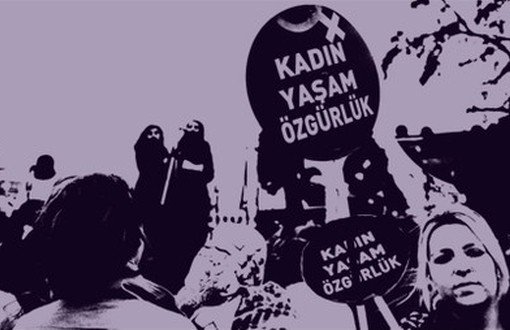The Council of Europe Convention on Preventing and Combating Violence against Women and Domestic Violence will finally come into force on 1 August 2014 upon the Andorra’s ratification of the Convention in April 2014. The Convention is considered ground-breaking since it is the first European Convention focusing specifically on violence against women and obliges ratifying states to take necessary measures for prevention, protection, prosecution and to act with due diligence.[1] The Convention, also known as the Istanbul Convention, was first presented in Istanbul in 2011 and Turkey became the first signatory to the Convention. As a woman from Turkey should this development make me more hopeful about the future of women’s rights in Turkey?
Turkey and Its Chronic Problem: Violence against Women
Violence against women is a serious problem in Turkey despite legislative changes that look positive on the surface. In 2013, 214 women were killed, 167 women were raped, 241 women were battered, and 161 women were sexually assaulted.[2] In most of the cases these women were murdered, abused and assaulted at the hands of a close male family member, so called ’loved ones’. 13.5% of victims were killed even though they sought help from the authorities and or had a protection order. While I was writing this article, six women were killed in Turkey in two days. 137 women’s organisations made a joint public statement that they would be on the streets protesting until the Turkish parliament hold an extraordinary session on femicide.
Since early the 2000s, Turkey has been taking notable legal steps in line with UN standards and the EU accession requirements to tackle the problem. However, there is a fatal gap between the law and its implementation. One of the most important shortcomings is inadequate protection mechanisms such as shelters, helplines, counselling and other support services for survivors of gender based violence. According to data provided by the Ministry of Family and Social Policies, there are only 125 shelters for women survivors in Turkey. Six provinces in Turkey have no shelters for women. Istanbul has a population of approximately 15 million people, but has only 17 shelters.[3] Due to the fact that the government does not take full responsibility to protect women, and the law only remains on paper, many women keep silent and don’t seek help. Some ask for help but are left alone with no protection. This failure holds progress towards breaking the cycle of violence back and as a result women are “double-victimized” by the government.
I am hopeful because the Convention has the potential to push Turkey to take meaningful steps to implementing protection mechanisms (shelters, helplines, etc.) properly. However, to remove the gap between the law and its implementation, and consequently eliminating violence against women, the government should address the heart of the problem. How could a state prevent and ultimately end violence against women, by ’empowering’ women; promoting further education, giving women better employment opportunities or by legal changes? Yes, all of these are an important part of the struggle but are they enough?
Patriarchy and Violence against Women
There are a variety of intersected reasons but for me the fundamental explanation of violence against women is the patriarchally constructed historical inequality between men and women. As many feminists argue the discriminatory division of public and private life, confinement of women in private life, differentiated gender-based roles and definition and social acceptance of women only as mothers or wives are reasons behind the historical inequality between men and women.
Historically and traditionally, women have been considered inferior to their male counterparts in Turkey not only by society but also by the state. Marriage and motherhood have been the only and inevitable way for a woman to be accepted in society. Women’s bodies and sexuality have been controlled both by the state and male family members for years. Historical confinement of women to the private sphere have prevented them from having an identity in public, kept them out of employment, politics and other decision making processes; thus, they have remained dependent on men for years. This dependency and inequality has established and reinforced the belief of women’s inferiority and legitimacy of violence against women. While it was justified and normalized by society, it was ignored by the state. Thanks to the feminist movement in Turkey and the development of the global discourse which recognises women’s rights as human rights, women started rejecting traditional gender-based roles and questioning the traditional understanding of family as well as becoming increasingly visible in the public sphere. Now violence against women is no longer ignored by the legislature and domestic violence is not considered a private matter. Recent developments in the law on violence against women give hope but are not enough due to the fact that patriarchal structure of the society remains intact. Men still believe women are inferior to them and worst of all, law enforcement officials who are responsible for protection still consider domestic violence as a private matter, blame women for being raped, assaulted and battered.
Unless we eradicate the discriminatory division of public-private, gender-based roles and stereotypes in our minds and consequently in our society, we end up struggling around the problem without putting our finger on the core and, we keep wondering why violence against women is still prevalent despite legal changes. Article 12(1) of the Convention points out the core of the problem and obliges states to fight against patriarchy: “Parties shall take the necessary measures to promote changes in the social and cultural patterns of behaviour of women and men with a view to eradicating prejudices, customs, traditions and all other practices which are based on the idea of the inferiority of women or on stereotyped roles for women and men.” This article lies my concern with Turkey’s ability to meaningfully implement the Convention.
Say ‘Woman’, is it difficult?
Is it possible for a state to eradicate patriarchal views if the discourse and policies of that state implicitly or explicitly promote and reinforce gender inequality?
When I said the patriarchal structure of society remains intact in Turkey, I did not exclude politicians, MPs, government officials from whom the Convention expects strong will to fight against violence. Even the parliamentary discussions- male dominated assembly discussions with only 14% of women- about new legislations on violence against women are full of gender-based roles and stereotypes. Mostly, we hear from our MPs that violence against women should end because women are the mothers, sisters and lovely wives. No, as women, we don’t accept this. We don’t want to be defined in relation to men and by men. We are first and foremost women, not mothers or wives. Protection of the family rather than protection of women dominates the discussions about domestic violence. Sanctity of the family unit is glorified and defended at the expense of women. MPs vigorously advocate that domestic violence should stop for the sake of the most important unit of the society - the family. No, as women, we don’t accept this. If there is violence in a family, you can’t protect both woman and the traditional notion of family. In the end you have to sacrifice one. Domestic violence should end not for the sake of the family unit but for the well-being of each individual woman.
This patriarchal mindset inevitably impacts the government policies. In 2011, the Ministry of Women and Family Affairs was abolished and replaced with the Ministry of Family and Social Policies. The title of the former also reinforced the idea that the place of women is in the family, but by replacing it with latter; they hid women under the cloak of the family. The Ministry’s focus was broadened and shifted from women to family in a country where violence against women and gender inequality is a serious problem. Prime Minister Erdogan said: "We are a conservative democratic party. The family is important to us", in his defence of the abolishment of the Ministry. No, as women, we don’t accept this. We need a Ministry of Women focusing only on women’s issues and gender equality. Women exist and women are everywhere, not only in families as mothers! Violence against women does not only happen in families, women are also abused and assaulted in public by men just because they are women. In addition, we don’t want to be valued or defined as family members; because we know that by chaining us to the family, we were burden with child bearing, caring and unpaid invisible domestic work. We were isolated from public; from labour, from any decision-making roles, we could not enjoy our civic rights equal to men. We don’t want to be pushed back into the private sphere by incentives like “3 Children”[4] either because we know that confinement of women in the family is the main reason behind inequality and violence. We want to enjoy our rights as equal citizens of Turkey regardless of our marital status as men do. We expect our MPs to use the word ‘woman’with no hesitation and without replacing it with sister, mother or wife when they try to describe a woman.
Am I hopeful about the future after 1st August? Although the outlook seems dark, I really want to be... I want to see the Convention having a positive impact on Turkey. I hope Turkey as a first and proud signatory to the Convention will fulfill its responsibilities and combat violence against women sincerely and decisively. I know it is difficult; it requires constant efforts by the government to de-construct the discriminatory, patriarchal structure of the society including their own mindset and re-construct a society where women and men are equal. But everything will start with a single word. No need to worry, as women, we are always here to remind them whenever they forget, ignore or hesitate to say: WOMAN!
As a good start, to see the true will of the Government;
#wewantaministryofwomen
#kadındansorumludevletbakanligiistiyoruz
#notmothersbutwomen
#annedegiloncekadiniz
[2] These numbers are only represent the reported incidents: http://www.bianet.org/bianet/women/153028-reflections-on-male-violence-tallies-2010-2013
[3] http://www.cumhuriyet.com.tr/haber/turkiye/60975/2_ayda__siginma__patlamasi.html?vqgkuvhvhyuotmws
[4] The Prime Minister of Turkey, Erdogan constantly calls women to give birth at least 3 children.
* Özlem Hangül, University of Essex.






